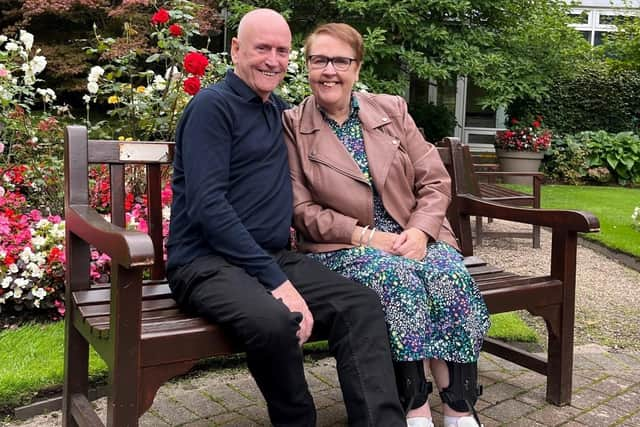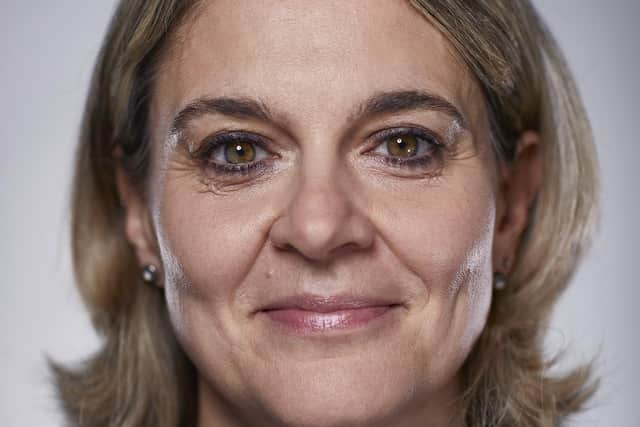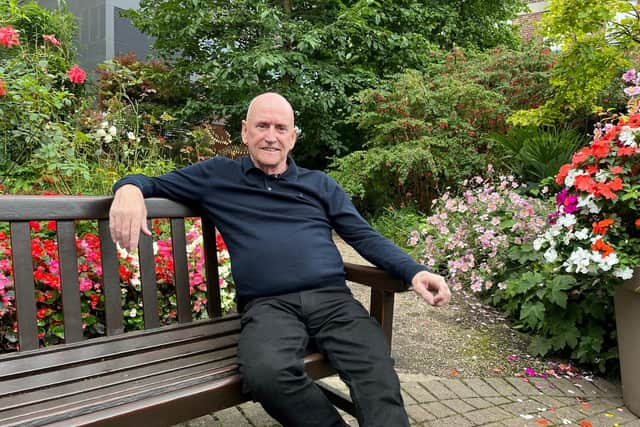Wigan great-grandfather agrees to trial new cancer treatment technique
and live on Freeview channel 276
The study, involving Alan Featherstone from Golborne is being run at The Christie NHS Foundation Trust in Manchester.
The innovative “opt out” study is made possible thanks to a £2.3m grant from the National Institute for Health and Care Research and is sponsored by The Christie.
Advertisement
Hide AdAdvertisement
Hide AdThe aim of the study is to help improve the survival of patients who have been successfully treated for lung cancer but may go on to experience serious heart problems as a result of the cancer treatment.


The Christie lung team is using a new approach to do this that means all patients treated with radiotherapy for lung cancer can take part.
This is much more inclusive than traditional clinical trials where participation is often restricted to small, selected groups and means the study team can learn from every patient with lung cancer treated with radiotherapy.
Alan, who is married to Barbara, is one of The Christie patients who is taking part in the study, having been diagnosed with primary lung cancer in each lung in March this year.


Advertisement
Hide AdAdvertisement
Hide AdHe said: “I had a persistent cough and lost weight so went to the doctor and they found I had a tumour in each lung.
"Surgery wasn’t an option so after chemo, which reduced the tumours, I’ve started a six-week course of radiotherapy.
"I’m very comfortable being part of the trial and my data being used. I believe if you’re offered the chance to be on a trial you take it. It’s not about me. Without research we wouldn’t have the advances in cancer care.”
The study is the first of its kind anywhere in the world, and the culmination of more than seven years work by the radiotherapy research team at The Christie.


Advertisement
Hide AdAdvertisement
Hide AdRadiotherapy is one of the most effective and common treatments for lung cancer, but is known that when the top of the heart is irradiated it can lead to heart disease including heart attacks and irregular heartbeat.
The aim of the research is to change clinical practice by understanding how best to treat lung cancers with radiotherapy without causing damaging the heart.
Lung cancer is the leading cause of death from cancer in the UK with 35,000 people dying and 48,000 people are diagnosed annually.
Five-year survival is low at 15 per cent. Manchester has one of the worst lung cancer mortality rates in England, double the national average. Radiotherapy is recommended for half of patients and it cures 40 per cent of those treated.
Patients eligible for the study include those with stage 1, 2 and 3 lung cancer that hasn’t spread to other parts of the body who are receiving radiotherapy with the aim of curing them of cancer.
The Christie team is recruiting patients at a rate of 50 per month to the RAPID-RT study, with the aim of gathering data from at least 2000 people by 2027.
To manage the large numbers, the team has developed special AI (artificial intelligence) auto-contouring software to define the part of the heart to spare, which is two and half times faster than doing the task manually.
Without this AI tool, doctors have to draw a line around healthy organs on scans ahead of radiotherapy to protect the healthy tissue surrounding the cancer from being exposed to radiation.
It can take between 20 minutes and three hours to do this for each patient.
Advertisement
Hide AdAdvertisement
Hide AdThis new technology, design specifically for treating lung cancer, can identify the areas that need to be spared and the oncologist just needs to check the scan before performing the procedure.
Corinne Faivre-Finn, a professor of thoracic radiation oncology at The University of Manchester and honorary consultant clinical oncologist at The Christie, who is a world-leader in lung cancer radiotherapy research, said: “Lung cancer treatment has improved dramatically over the last decade.
"However, we now need to reduce the serious side-effects of treatment for cancer survivors. This is a unique study in that all patients with lung cancer stage 1-3 treated with standard of care radiotherapy are eligible.